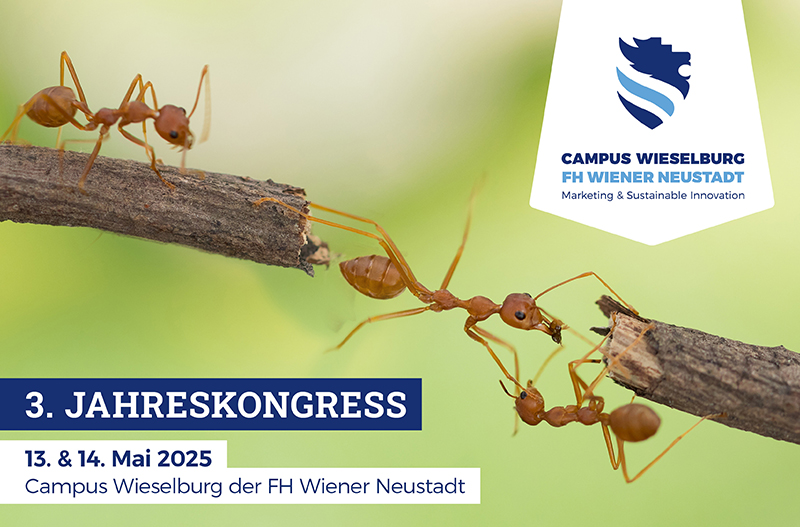On 13 and 14 May 2025, the Austrian Future Food Connective Innovation Hub took part in the third annual congress of the Alliance for Sustainable Universities, held at the Wieselburg campus of the University of Applied Sciences Wiener Neustadt.
The theme of this year’s congress – “Sustainability meets digitalisation: Ways for our Universities” – invited participants to explore how digital transformation can support sustainable development across academic institutions, research networks, and practical innovation ecosystems.
As part of the programme, David Strauß from the University of Applied Sciences BFI Vienna represented the Innovation Hub with a presentation entitled:“Sustainable Local Food Systems in Europe: Comparing Business Models of Alternative Food Networks Across Five Countries.”
His contribution reflected key insights from the Food4CE project and examined how Alternative Food Networks (AFNs) are structured and operate in Austria, Italy, Hungary, Poland, and Slovenia.
Using the Business Model Canvas framework, the session offered a comparative perspective on AFNs’ value propositions, channels, key activities, and stakeholder relationships. Based on a mix of desk research involving 391 AFNs and surveys conducted across five countries, the analysis revealed both common challenges and regional differences in AFNs’ organisational models.
The findings highlighted that similarities are often found in customer segments and revenue streams, while differences are shaped by local regulations, logistics capacity, and levels of network fragmentation. These insights help identify opportunities for innovation and digital transformation within regional food systems.
David Strauß also introduced the Austrian Future Food Connective Innovation Hub, developed within the Food4CE project to connect stakeholders from food systems, logistics, research, and civil society. The hub supports the development of innovative solutions in short food supply chains (SFSCs) by fostering collaboration, knowledge transfer, and co-creation among actors
